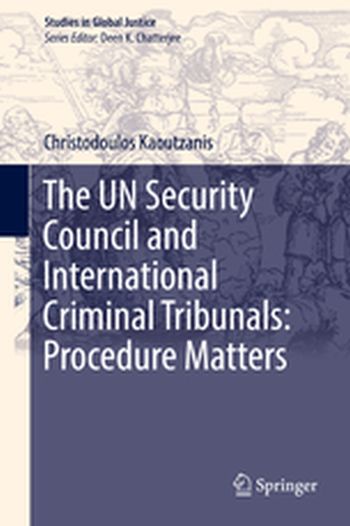
The book explains why and how the UN Security Council authorizes international criminal investigations into mass atrocities. In doing so, it tackles head-on the obvious double standards of global justice, where few atrocities get investigated and most slip below the headlines.
The book argues that the Council's decision-making procedure is central to understanding the Council's decisions. This procedure is broken into three distinct steps, namely the role of diplomats at the Council, the Council's reliance on third parties and the Council's resort to precedent. The volume documents that the Council authorized international criminal investigations only into the handful of mass atrocities for which the Council's deliberations successfully completed each of these three steps.
Written for both scholars and practitioners, the book combines insights from the fields of international relations, international law and human rights. Through archival research and interviews with UNSC diplomats who took part in deliberations on atrocities, the volume presents evidence that supports its argument across cases and across time. In doing so, the book avoids the yes/no (or 0 vs 1) tendency of many social science projects, thereby acknowledging that there is no silver bullet to explain the work of the Council's five permanent and ten elected members.